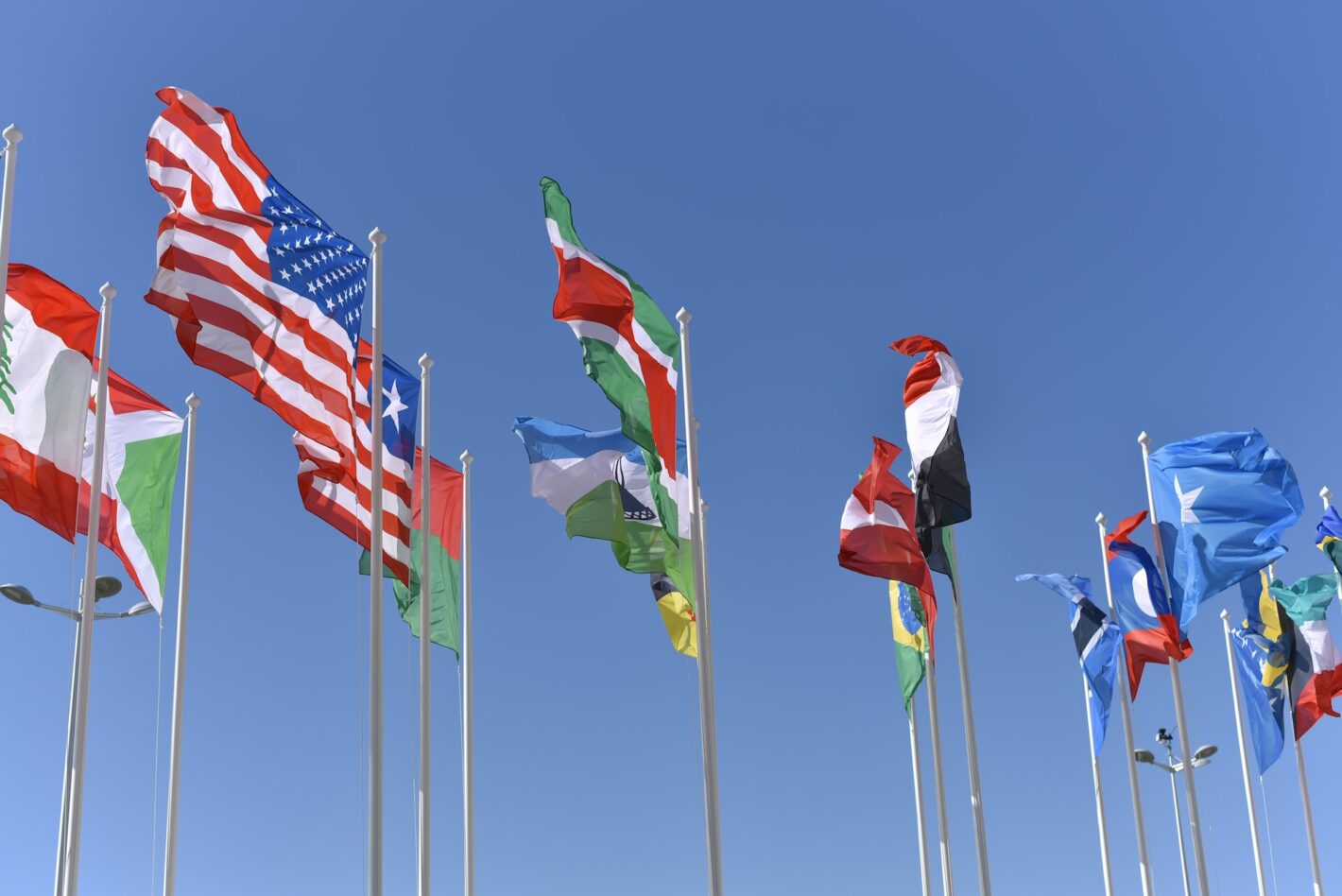What Is an International Relations Professional?

In the Field of Political Science, there exists a complex domain of International Relations dedicated to studying the interactions between states. Specialists in this field are tasked with developing diplomatic, economic, and international relations among countries.
Beyond national borders, these experts also function as liaisons with transnational corporations, non-governmental organizations, and enterprises operating beyond their territory.
Primary Duties and Core Responsibilities
Responsibilities of International Relations Specialists encompass a broad range of functions, including:
- Engaging with a Wide Range of Individuals: From diplomats, officials, and public organizations to research institutes, journalists, and political parties, these specialists must adeptly communicate and establish contacts with diverse stakeholders;
- Global Understanding: It is crucial to thoroughly comprehend the politics, issues, and rules of foreign countries. This involves meticulous analysis of the actions of administrations, corporations, and institutions on a global scale;
- Strategic Consultation: They provide employers with strategic recommendations on matters of state and foreign policy. They meticulously analyze policy and practice, guiding institutions and organizations to make informed decisions;
- Informed Recommendations: By analyzing election results, public opinion polls, and legislative initiatives, specialists formulate well-founded proposals;
- Dissemination of Knowledge: Disseminating research findings through publications in scientific and professional journals, preparing reports, and conducting public briefings;
- Policy Formation: Collaborating with countries and international organizations to develop effective international policies;
- Drafting and Preparation: International Relations specialists prepare drafts of legal bills, presentations, letters, and various documents related to international relations. They also actively support partnership initiatives in governmental and non-governmental organizations;
- Public Commentary: Expressing critical or positive opinions on government policies, issues, and incidents through media channels;
- Forecasting: Specialists forecast trends and potential scenarios in international politics;
- Comprehensive Analysis: Thoroughly evaluating sources and consequences of international issues, offering alternative approaches;
- Continuous Updating: Maintaining up-to-date information on international and domestic political changes;
- Interpretation of International Organizations: Interpreting the activities of such organizations to gain insight into global dynamics;
- Policy Consultations: Offering consultations on legislative and normative regulation of international policy;
- Promoting International Trade: Initiating and developing official and unofficial activities in the realm of trade.
The Work Environment of International Relations Specialists
Professionals in this field work in various structures, including government agencies, foreign institutions, and embassies. Their role involves analyzing and interpreting the intricacies of international relations.
Additionally, they play a crucial role in public relations departments of international organizations, institutions, and corporations. Their expertise bridges the gap between projects and the international legal frameworks that govern them.
Global Diplomacy: The Role of the UN on a Worldwide Stage
The scope of International Relations is extensive, encompassing topics like globalization, sustainable development, environmental issues, counterterrorism, economic progress, international finance, and social equality. Notably, there are numerous specialized directions within this field.
These directions cater to specific requirements and experiences, enabling specialists to easily adapt to organizations in need of their expertise.
Among the common roles taken up by specialists in this field are:
- Diplomats: Serving as intermediaries between their own country and foreign states. They gather intelligence on the policies of foreign nations that could impact their own country. Diplomats’ main tasks include peacekeeping, trade negotiations, addressing ethnic inequality, and safeguarding national interests;
- Intelligence Specialists: These experts work in areas such as national security, armed forces, and federal agencies, engaging in the collection and interpretation of classified intelligence information. Their responsibilities encompass managing institutional data, preparing conclusions, and creating informative visual materials;
- Communications and Public Relations Specialists: Multinational corporations often require professionals well-versed in communications and familiar with international dynamics. These specialists ensure effective communication among employees and stakeholders in various operational domains.
As mentioned earlier, the application of this discipline spans numerous sectors. Qualified support is required by both enterprises and organizations to accomplish their objectives.
Prominent employers include government institutions, corporate giants, legal firms, media outlets, academic institutes, and influential non-governmental organizations such as UNICEF, the World Bank, WHO, the United Nations, and charitable organizations.
Paving the Path to Becoming an International Relations Specialist:
- Education: Prospective specialists in this field have ample opportunities to acquire education from various organizations, agencies, and government departments dedicated to international affairs. Typically, education begins with obtaining a bachelor’s degree in International Relations, followed by the potential pursuit of a master’s or doctoral degree in specialized areas such as sustainable development, human rights law, intelligence, or counterterrorism;
- Language Proficiency: Proficiency in additional common languages can significantly bolster positions in this field. Languages such as French, German, Spanish, or Portuguese provide valuable advantages in effective communication;
- Practical Experience and Volunteering: Practical experience is highly beneficial for candidates entering this field, which can be gained by engaging in diplomatic activities and foreign affairs-related endeavors. Many non-governmental organizations and international entities actively seek volunteers to support their missions;
- Essential Skills: Effective organizational skills are essential for International Relations specialists who often work on multiple projects simultaneously. Prioritization is crucial due to the high demand;
- Technology Utilization: While not always explicitly stated in job listings, proficiency with modern technological tools is advantageous. Using the Internet for research and social media for communication, as well as conducting online meetings and video conferences enhances work efficiency. Familiarity with programs like Word, Excel, and PowerPoint is also helpful.
Compensation Insights
While dedication to the field is a driving force for many specialists, understanding the rewards for their contributions is significant. The median annual earnings for International Relations specialists are around $81,000, with lower earnings starting at $56,000.

Highly effective specialists in this field can earn up to $113,000 per year. Compensation depends on qualifications, degrees, and the specialist’s geographic location. For instance, the average salary in Canada is $81,918, in the UK it’s £68,902, and in Australia, it’s $86,000 per year.
Conclusion
The role of an international relations specialist holds paramount significance in our increasingly interconnected and globalized world. In this article, we have explored the multifaceted responsibilities and skill set required for individuals pursuing a career in this field.
They play a pivotal role in facilitating diplomatic communication, promoting peaceful conflict resolution, and fostering international cooperation. Their ability to analyze complex geopolitical situations, comprehend cultural nuances, and navigate intricate international structures enables them to make a significant contribution to the development of global policies.
The dynamic nature of international relations demands a constant pursuit of staying abreast of global events, political developments, and economic trends. A successful specialist must possess exceptional communication skills, enabling effective conveyance of ideas, negotiation, agreement-making, and alliance-building, even across cultural and linguistic barriers.
Furthermore, the ethical dimension of this profession cannot be overlooked. International relations specialists often grapple with issues with far-reaching consequences such as human rights violations, environmental challenges, and global health crises. Hence, for professionals in this domain, high moral principles, adherence to international norms, and a sense of responsibility are crucial.
As the world evolves, so will the role of international relations specialists. With the emergence of new technologies, shifts in power dynamics, and emerging global challenges, specialists must adapt and innovate to remain effective in their roles. Whether they work within governments, non-governmental organizations, international institutes, or the private sector, their experience will be pivotal in shaping a more amicable, peaceful, and prosperous world.
In essence, the realm of international relations weaves together diplomacy, politics, economics, and ethics into a rich tapestry. Those who choose this path play a crucial role in bridging divides, strengthening mutual understanding, and creating avenues for collaboration on a global scale. In an era marked by unprecedented challenges and remarkable potential, the work of international relations specialists serves as a beacon of hope for a more harmonious and interconnected future.


